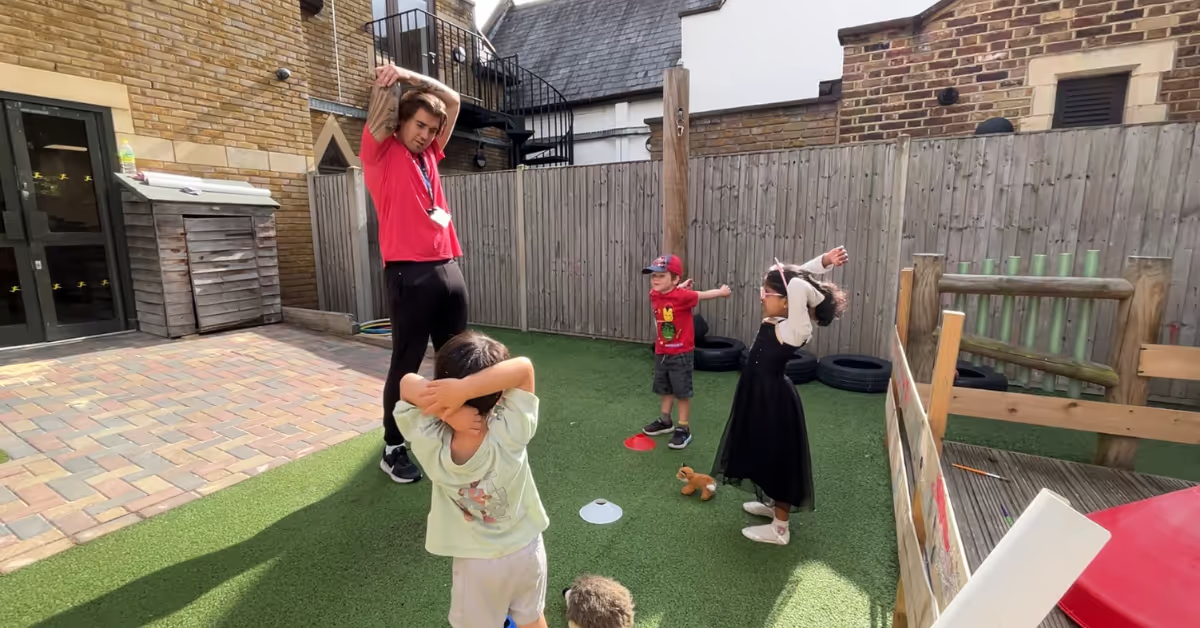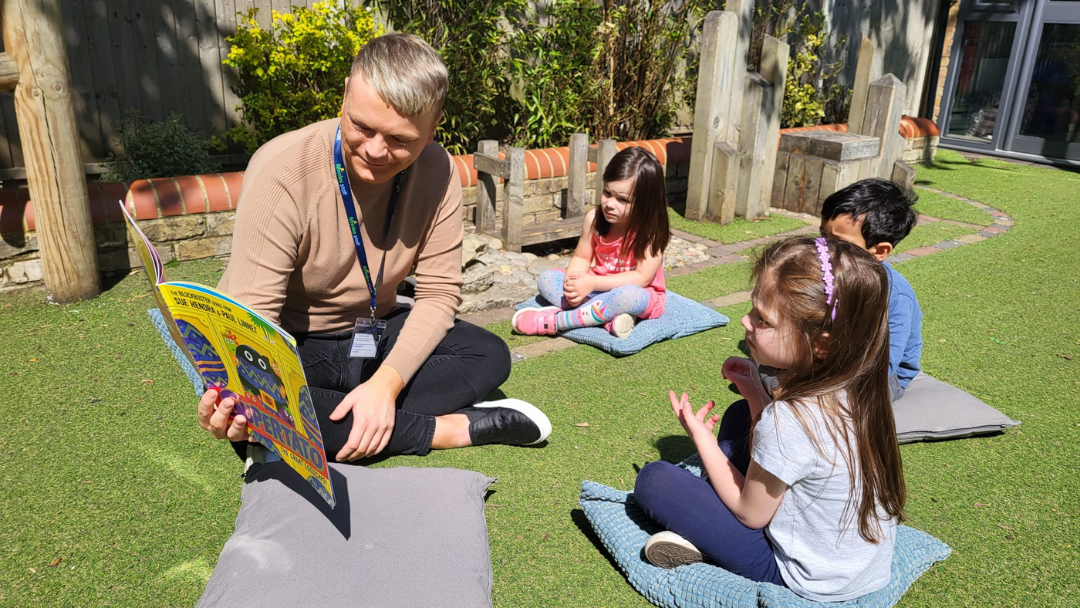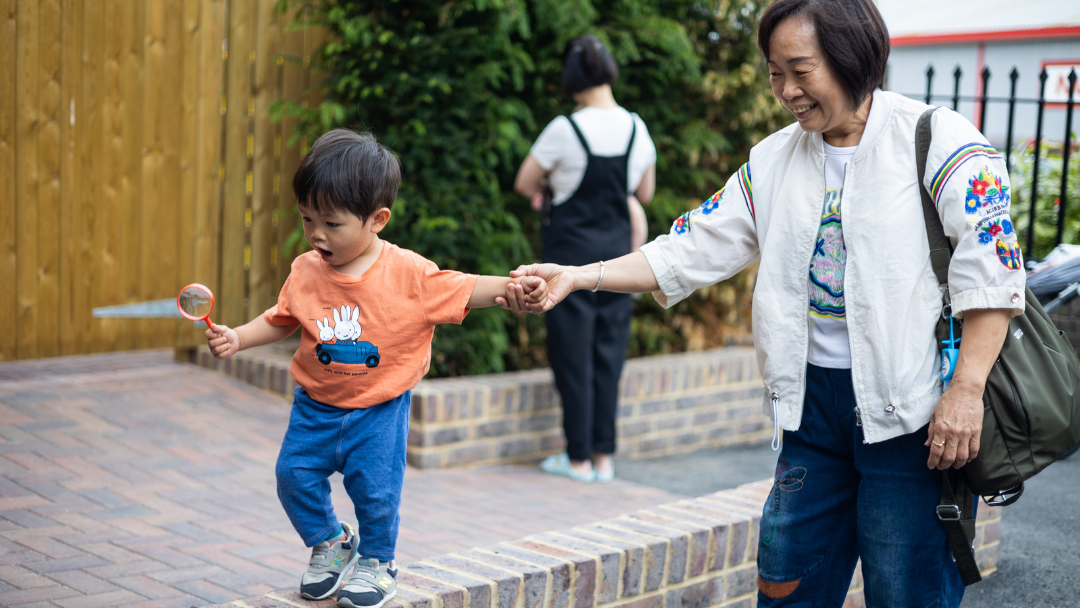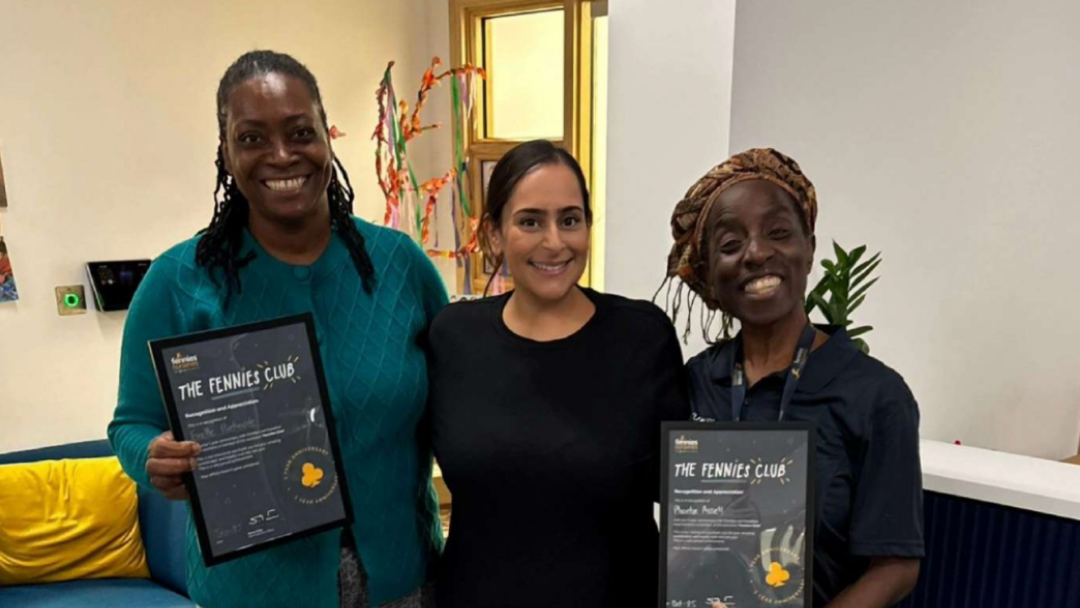Our Regional Manager, Nicola, shares insights on males in EY education.

Welcome to my blog, where I share experiences and insights from male practitioners in the field of early years education. Their journey in this traditionally female-dominated profession has been both rewarding and eye-opening, and we hope to inspire others while challenging gender stereotypes along the way.
I have spent over 30 years working within the early years industry and have led many teams to outstanding outcomes for children. Within that leadership journey you reflect on your teams’ individual strengths and how you bring people together to get the best from everyone. Identifying strengths within an early year’s team involves recognising the unique skills and abilities of each team member. Consider their expertise in areas such as child development, curriculum planning, communication, creativity, or problem-solving. Conducting team assessments, observing their interactions with children, and seeking input from colleagues can help identify these strengths. Once identified, leverage these strengths to enhance teamwork, improve teaching practices, and provide the best possible care and education for young children. Very early on I was able to recognise the gap we had as an industry where male practitioners were very few and far between. I was lucky enough to have 2 very skilled and loving male practitioners within my setting, what they contributed was simply outstanding, however what they went through with narrow-minded parents and some team members was so sad.
The importance of breaking gender stereotypes, sharing how this can overcome initial doubts and misconceptions about working with young children and how passion for early childhood education led people to where they are today. There are indeed several misconceptions regarding males working in early childhood education. These misconceptions can perpetuate stereotypes and hinder gender diversity in the field. Here are a few common misconceptions: “Male Early Educators Must Have Ulterior Motives”: Some people assume that men who choose to work in early childhood education must have ulterior motives or are somehow suspicious. But in reality, many men enter the field out of a genuine passion for working with young children and helping them learn and grow. Some believe men are less nurturing”:
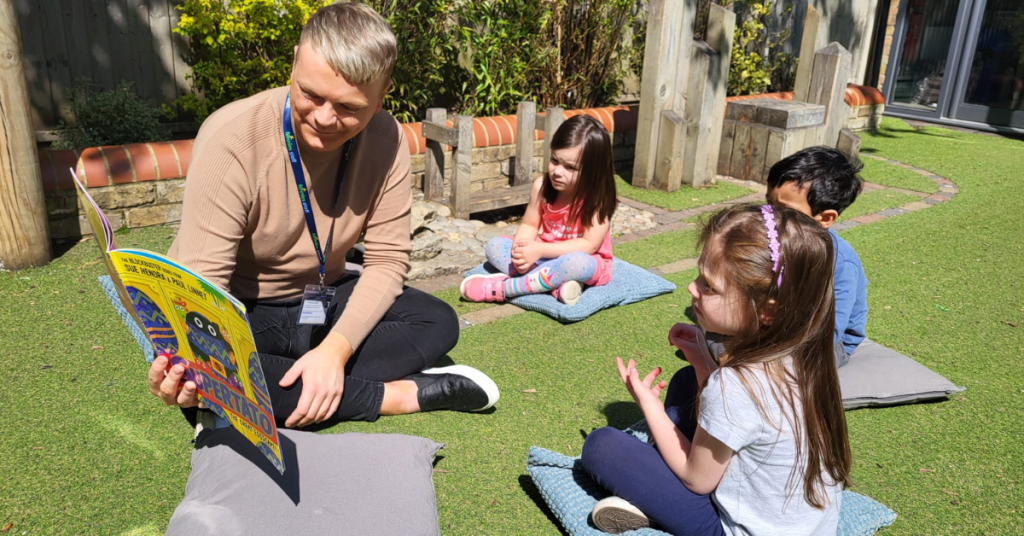
There is a misconception that men are less nurturing or caring compared to women, which can discourage male educators from entering the field. We need to remember caregiving qualities aren’t gender-specific, and many men excel in providing emotional support and guidance to children.
Some questions relate to “Males in Early Education Are Rare”: The misconception that male educators are rare can deter potential male candidates from pursuing careers in early childhood education. While the field is predominantly female, there is a growing recognition of the need for gender diversity and increased opportunities for men. It’s important as an industry we all challenge these misconceptions and promote gender diversity in the field of early childhood education. Encouraging men to pursue careers in early education, providing them with support and mentorship, and raising awareness about the valuable contributions they can make can help break down these stereotypes.
Male practitioners in early childhood education can have a significant and positive impact on children, families, and the field itself. Here are some key ways in which their presence can be beneficial to diverse role models. Male practitioners provide children with diverse role models, challenging traditional gender stereotypes and expanding children’s understanding of gender roles and possibilities. Male practitioners often bring different teaching styles and perspectives to the classroom, enriching the learning experience for all children. Children benefit from the emotional support and nurturing care provided by male educators, which contributes to their emotional development and social skills. The presence of male practitioners can promote gender equity and inclusivity in early childhood settings, fostering a more balanced and equal learning environment. Male practitioners can encourage greater engagement from fathers and male caregivers, as they may feel more comfortable interacting with male educators. They can form strong and positive relationships with children, helping build trust, confidence, and a sense of security in the learning environment. Male practitioners often bring unique approaches to conflict resolution and problem-solving, which can be valuable in teaching children essential life skills.
Their presence can inspire other men to consider careers in early childhood education, leading to greater gender diversity in the field. The impact of male practitioners in the early years is multifaceted and contributes to a more diverse, inclusive, and enriching educational experience for children. Their presence challenges stereotypes, fosters emotional development, and promotes gender equity in early childhood education.

Embracing vulnerability with male practitioners in the early years is essential for creating a nurturing and inclusive educational environment. It’s important to encourage male practitioners to communicate openly about their thoughts, feelings, and experiences with children, families, and colleagues. Sharing vulnerabilities fosters trust and empathy. Male educators often serve as role models by expressing a range of emotions appropriately. This helps children learn about emotional intelligence and how to express their feelings. It’s really important to establish a safe and non-judgmental space where male practitioners feel comfortable discussing their vulnerabilities and seeking support when needed.
We should encourage male practitioners to regularly reflect on their teaching practices and acknowledge areas where they may need improvement or growth. By embracing vulnerability with male practitioners in the early years, the educational setting becomes more empathetic, supportive, and emotionally intelligent. This benefits not only male educators but also the children and families they interact with. It helps create a more inclusive and compassionate learning environment for all.
Being a male practitioner in early years education is not without its challenges, but the rewards are immeasurable. Through this blog, I hope to encourage more men to consider this path, promote diversity, and continue breaking down stereotypes in a profession that is all about nurturing the future. By the end of my journey as a nursery manager, I was lucky enough to have had a total of 8 male practitioners within my setting. We achieved multiple outstandings and became a flagship nursery. I believe it was all down to the dynamics, skills, outstanding role models, dedication and passion of the team I created. Remember – creating an outstanding team requires all sorts of people coming together to make a commitment to excellence, a deep understanding of child development and a nurturing and supportive approach to early education and childcare.
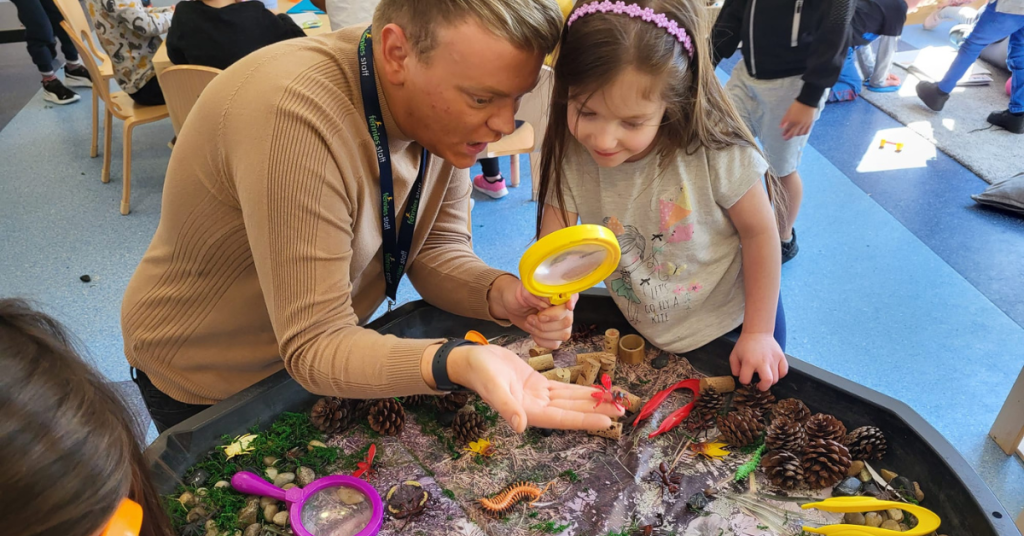
Through the males practitioners eyes
“When I first started working in childcare over 25 years ago it was a very different industry. As a male practitioner you were viewed by some parents and staff as an oddity, but overall, my experience was positive.
I have encountered some negative comments, such as “I don’t want him changing my child”. But as time has gone by, they have been very few and far between. I have been blessed with so much as I’ve been able to work with companies that are keen to recruit male practitioners (Fennies, Bright Horizons, ICP). This has made it easier for men to join the industry and to be more accepted as a career path.
When I first started my career, it took me 15 years before I had the opportunity to work with other male practitioners within my early years setting, so I believe it has come a long way over the years where parents and other professionals are more comfortable with the idea of men working in early years. - Jim Jennings “Woking”
“As a male practitioner working in the early years, it is apparent that most early years settings are predominantly female dominated. Over the years, however, I have seen more male practitioners starting to work in the industry. When I initially started at Fennies, I remember coming in for my interview and work trial; I was the centre of attention for sure and there were a few surprised and intrigued faces from both practitioners and children. I soon realised that this was mostly due to the fact that I was only one of two males working at that particular setting. Being an early years practitioner, I can definitely see the reasons why people may think it’s a more feminine job due to the nurturing nature of the role, women are typically seen as the caregiver, meeting care routines of children and being at the forefront of their upbringing and education.
Working with mostly females certainly took some getting used to, it can get a bit manic and sometimes words or phrases can be misunderstood or interpreted, tensions can build and that’s inevitable when looking after little ones who are also learning boundaries and right from wrong. What’s been most rewarding is knowing that despite the differences in approaches and attitudes, caring and looking after the children has always been at the forefront of every one of my colleagues’ priorities.
On reflection I haven’t faced many challenges in the industry for being a male practitioner, however I do remember one family who came to look around the nursery for a show round and saw me sitting reading with one of the children. They instantly voiced to the manager that it was against their beliefs for a man to be working so closely with their young child. I remember feeling inferior and out of place. But my manager was brilliant and let the parents know that our policy reflects one of inclusion and equality for both children, families and practitioners and if they felt strongly about this that perhaps it wasn’t the right nursery for them. It was great to have the support from the company I worked for and more importantly to have the recognition for the value I bring to the children being a male practitioner.
Whilst working with the children over the years, I have created some brilliant bonds, not only with the children but with the parents too! Children who struggled to settle into nursery, soon did so very confidently due to the close attachment we had built. It really is so rewarding to see the progress children make over time and to hear the level of appreciation from the parents. Having said that, it is also sad when you’ve seen these children every day for years and then they go off to school as you’ll know you’ll miss them. Most parents I have worked with have asked for my number on their child’s last days in order to keep in touch and see how the children get on at school. It is nice when you receive comments from parents, saying how nice it is for their child to have a male role model in their lives and having them highlight that their progress at school and level of readiness has been due to my contribution as a nursery practitioner. It really does pull on the heartstrings, especially those of single parent households about how important a role I play in their child’s life. I think having more male practitioners is something that should be advocated as it offers more structure, a balanced approach and I have personally seen the positive impact this has played in the lives of children and their families.”- Connell “Raynes Park”
“I have been working in the Early Years sector for almost 8 years. As a male practitioner I experienced ups and downs such as stereotyping and bias. For instance, in the first nursery that I worked in, male practitioners were not allowed to change nappies. However, there were a lot of positive things e.g., I was able to work and undertake Early Years studies at the same time receiving a great support from management. This enhanced my knowledge and understanding of children’s development, parent partnership and other aspects of Early Years.
Nowadays the perception of male early years educators is much better than 8 years ago. I progressed within the sector from being an unqualified practitioner to a management position. This led me to be part of the Equality and Diversity committee and to run the Males in Early Years Committee.
Reflecting on my personal experiences, I believe that the male role model is an important factor in children’s development increasing their awareness of diversity within the society. There is still room for improvement regarding the number of male educators in the Early Years sector, but I can see that change is coming. – Kevin “Teddington”
FAQ
Subscribe to our newsletter
Stay up to date with Fennies news


